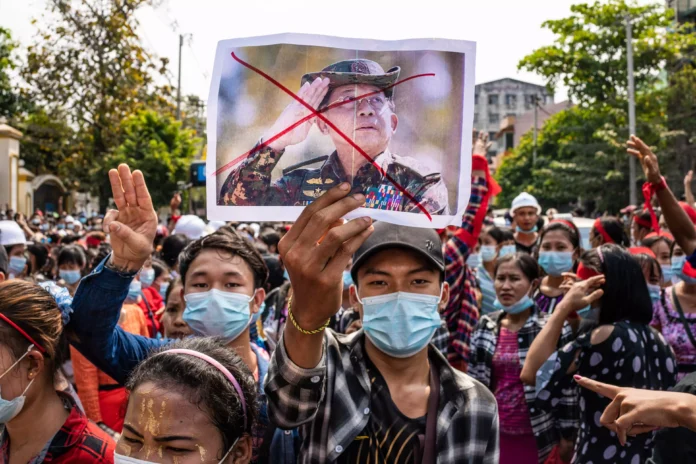Author: Lindsay Maizland
Affiliation: Council on Foreign Relations
Organization/Publisher: Council on Foreign Relations
Date/Place: February 9, 2021/USA
Type of Literature: Backgrounder
Word Count: 2657
Link: https://www.cfr.org/backgrounder/myanmar-history-coup-military-rule-ethnic-conflict-rohingya
Keywords: Myanmar, Military Coup, ethnic conflicts
Brief:
After the independence of Myanmar in 1948, a coup established a military regime that lasted from 1962 to 2011, during which Myanmar had a long isolationist history. The author addresses the last military coup milestones in the context of Myanmar’s historical background. It’s economic, ethnic diversities, coups, constitutions, relations with China and the US, revolutions, and protests by the public. During the military regime, the Junta strengthened its power by the Myanmar Constitution. Although Aung Sang Suu Kyi’s party NLD (National League for Democracy) took power in 2015 after democratic elections, the 2008 Constitution of Myanmar—generated by military rule—has continued to protect military power in the parliament. The Constitution requires that the military hold 25 percent of seats in the parliament. For any changes in the Constitution, more than 75 percent of the parliament must approve, effectively giving the military veto power over any change. After the 2020 November elections, the military party USDP (Union Solidarity and Development Party) claimed there was voter fraud against the military. On the contrary, in the last democratic election it was the military taking part in the disenfranchisement of ethnic groups. The military has now used its power, given by its 2008 Constitution, to take control. The author addresses the ethnic conflict that has taken place which continues to cause instabilities in Myanmar; negotiated cease-fires have happened but mostly failed. During democratic government, de facto leader Suu Kyi and President Thein Sein established peace negotiations, but it cannot be said to be very successful. After democratic government, it has also improved its relations with countries other than China. And although Myanmar’s economic situation progressed, most of the rural areas have struggled with poverty, especially most of the ethnic groups. Most ethnic groups live in hard conditions. For example, Rohingya Muslims have fled from violence, and ethnic cleansing takes place in Rakhine State. The Gambia has filed a lawsuit against Myanmar in the International Court of Justice because of Myanmar’s genocide against Rohingya Muslims. The US has imposed then relaxed sanctions on it, but after genocide has happened against Rohingya Muslims, Western countries have applied targeted sanctions and are considering reimposing more sanctions. But sanctions mostly force Myanmar to be closer to China, which after the recent coup has provided military support and continues to protect Myanmar generals from the effects of the coup.
By: Esra Ibrahimağaoğlu, CIGA Research Intern




